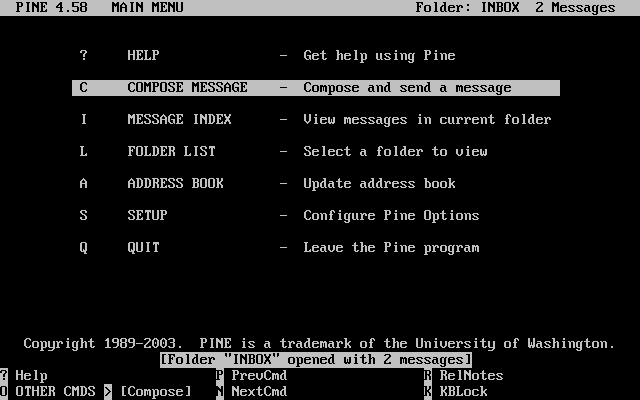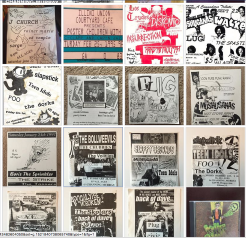Stacey Erdman is Digital Archivist at Beloit College, Wisconsin USA
Are archivists born or made? I suppose we’ll never know the answer to that question definitively, but I feel pretty confident that if there’s an archivist “gene” I’ve surely got it. I’ve been actively building a personal archive since I was old enough to understand what memories are.
Of course, coming of age during the rise of the personal computer presented me with challenges in this arena. I still own my first computer – an Apple IIc, along with the floppies that contain my clumsy attempts to learn to program in BASIC. When I went off to college in 1995, I purchased a used Macintosh Plus and dial-up modem; soon I was surfing Mosaic from my dorm room in Urbana-Champaign – home to HAL 9000, the fictional computer from 2001: A Space Odyssey. I discovered BBSs, IRC, newsgroups, MUDs, and became a voracious e-mail correspondent. I dove headfirst into this new online life, but with time, I grew concerned about the astounding impermanence of it all. How was I to document the time I was spending in these realms?

During this same time period, I was an active member of a punk music collective that put on shows for local and touring bands. When I first heard of the group I was intrigued, but also quite intimidated. Putting on concerts sounded way too complicated for an 18 year old from some small town. But I was starry-eyed and had taken up the Do-It-Yourself aka “DIY” ethos of punk subculture wholeheartedly. I was already an enthusiastic supporter of the local music scene, and also had a zine, so I decided to throw caution to the wind and give it a shot.
I remember my time in the group very fondly. At any one time there were about a dozen of us dividing the work, which included booking bands, securing venues, signing contracts, promotions, taking money at the door, cleaning, paying bands, cooking them food; and even letting them crash in our homes. Central to the DIY ethic is the empowerment of individuals - I learned by doing, by not being scared to try new things, and by opening my heart to new experiences and people. Our work nourished a rich local music scene and helped make our town a place people sought out. Our work also plugged us into an international subculture of folks doing the same thing - who we were increasingly finding on the internet. For a brief while it felt like we had built something completely independent of mainstream society; something a smidge utopian - free of bureaucratic and societal obstacles.

At the heart of this experience for me was ultimately one of preservation, and I documented this time as best as I could. I was mostly in charge of the group’s website, but I also saved fliers, ephemera, and mounds of emails. As graduation rolled around I swiftly received an account deactivation notice from the university. I knew my emails were crucial, but I also lacked the insight to properly archive them in Pine (within a Unix shell). At the time I had no knowledge of scripting or automation and determined I’d just need to save everything as text files. It wasn’t easy, but with brute force I was able to save hundreds of
messages. Reading them now, I marvel at the drama I had somehow forgotten about. But I also marvel at the scope of what we accomplished, and how that experience changed my worldview for the better. It’s a liberating feeling to have a sense of your own agency and to know that your contributions are valued.
It struck me recently that my philosophy of digital preservation can be directly tied to the time I spent in the collective, and the lessons I learned there. The DIY ethos inspires preservation simply because personal empowerment generates feelings of pride. When you feel you’re an active participant in your culture, you fight to make it better. When this occurs, preservation becomes second nature - without it, that culture ceases to move forward and thrive.
The Digital POWRR project initially began because a small group of people wanted to solve a very local problem. But as we learned more, we discovered that our problems were not unique, and that many others had similar struggles. The project bears the handprints of many talented colleagues who left their own distinctive mark. If I’ve contributed anything lasting, I hope it’s the general bent of the DIY philosophy that has so shaped my life. For this inaugural International DIgital Preservation Day, I’d like to call attention to the human element in this very technical endeavor. Digital preservation should bear no bar for participation - preservation happens because of you - and this wonderful community that we have all built.
